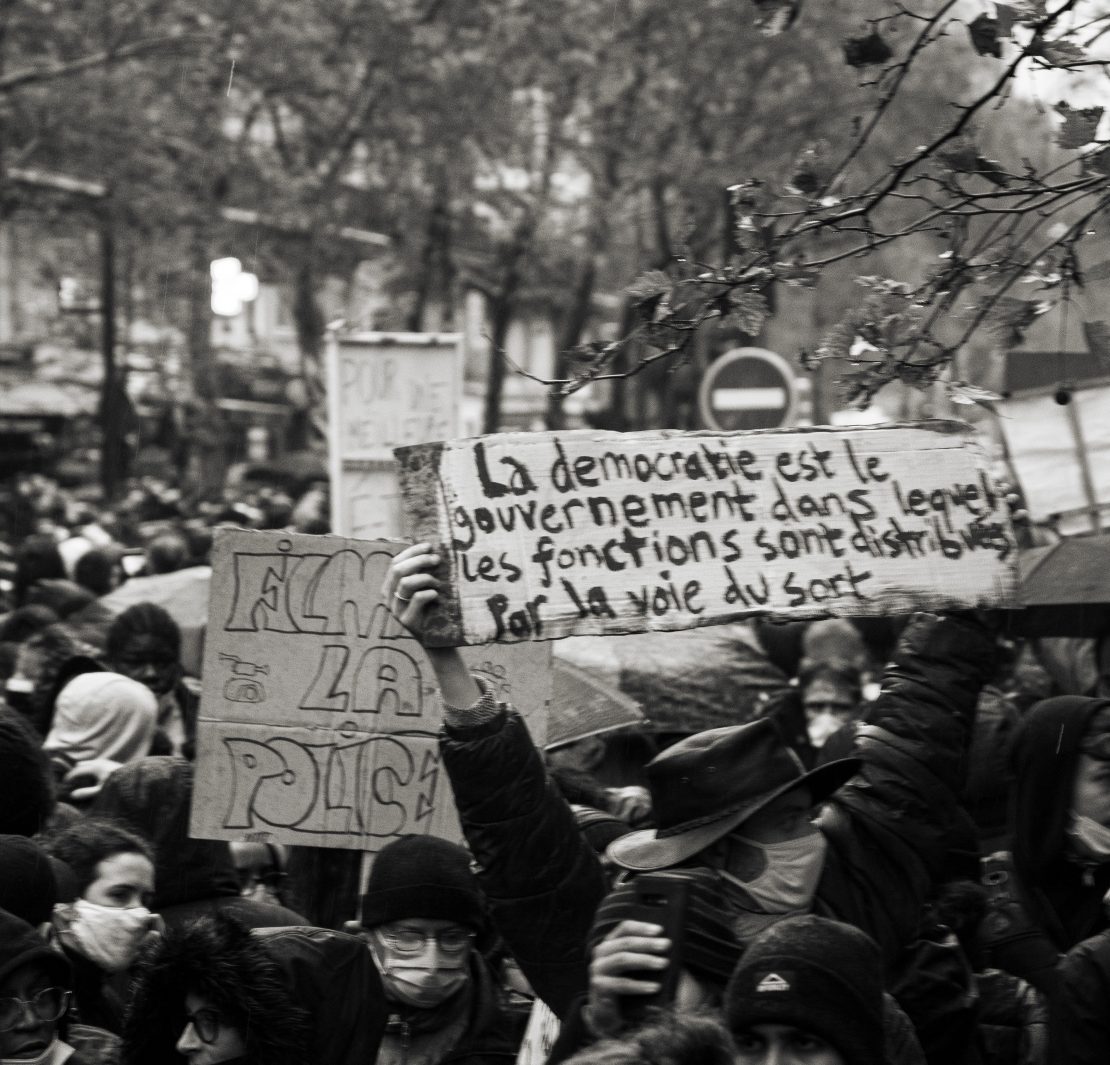The year, 2023 is only down 3 months, and we already have a comprehensive list of year-defining moments. From Hollywood history to scientists questioning the theory of our universe’s creation– times are changing, but one thing that hasn’t quite changed is how good the French are at protesting.
Paris is burning, and the people of France have been taking to the streets for what feels like ages. The city’s public transport is being brought to a standstill and trains are struggling to run throughout France. Schools have closed down as 70 per cent of primary teachers join the protests too. The average American is upset they probably won’t get to honeymoon in Paris, but the French don’t care anymore.
Today, the President of France said he’s going to force through a raise of the retirement age without a vote.
Tonight, Paris looks like this. https://t.co/k7MuFzMh02
— Stop Cop City (@JoshuaPHilll) March 16, 2023
Over the past couple of weeks, French people have been protesting President Emmanuel Macron forcing through an unpopular policy change which raises the pension age from 62 to 64. Prime Minister Élisabeth Borne invoked article 49:3 of the French constitution to pass the bill. It’s completely legal but extremely undemocratic.
Subsection 3 (Article 49.3) of the French constitution, allows the government to force passage of a bill without a vote. Opposition lawmakers then have 24 hours to file a no-confidence motion against the government. At least one-tenth of lawmakers in the lower house have to support the motion for it to go to the floor. Lawmakers vote on that motion in the days that follow. But such a vote has little chance of passing, since it may also entail the dissolution of the legislature pending new elections. A successful no-confidence motion practically topples the government — meaning the prime minister and the cabinet, but not the president.
France’s current republic, The Fifth Republic, designed this law upon its inception in 1958, to prevent crises like those that occurred under the Fourth Republic. In case of emergencies like the World War that call for quick measures, it became easier to pass laws bypassing the entire process. But over the past decade, people are seeing Article 49.3 as an increasingly undemocratic tool, used by the government to strong-arm lawmakers.
And that’s part of the reason why the french are protesting so much. For a law created strictly for emergencies, this is the 100th time that France’s Fifth Republic chose to draw on article 49.3 to force through an unpopular measure in less than 60 years.
For people outside of France, especially in the UK and the US where the retirement age is above 65, this seems like an overreaction. France has rather lax rules and regulations when it comes to stuff like this. It’s a bit more complex than that though.
For context, France’s social security system is point based: each year, an individual’s contributions are converted to retirement pension points and added to their account. To calculate the amount of your retirement pension, just multiply your number of points by the value of the point, which is determined each year. With the new bill, from 2027, workers will have to make social security contributions over 43 years rather than 42 years to draw a full pension. Unions say the proposed measures are unfair and would disproportionately affect low-skilled workers in tiring jobs who start their careers early.
To give you a bit of history on this law: France’s socialist President François Mitterrand cut the retirement age from 65 to 60 in the early 1980s. Practically every French president that followed struggled to overhaul this change. Jacques Chirac’s right-wing government tried to regulate the pension system but the public did what it does best, and protested so intensely that they dropped the reforms. His successor, Nicolas Sarkozy then managed to increase the retirement age from 60 to 62 but not without facing months of nationwide protests.
Then, President Francois Hollande who served from 2012 to 2017, sneakily reformed the system by leaving the headline minimum retirement age at 62 but enacting a gradual increase in the contribution years. Then came Macron, who originally wanted a complete reform of the system, but couldn’t succeed in his first term due to COVID and protests. He has tried his hardest to reform this law, so much so that his popularity rate has plummeted deeply, but now, in his second presidential term, it doesn’t look like he cares much.
Morale in France is low and getting lower, and people see retirement as a bright spot in the future. This new bill would take even that away. But the French are no strangers to revolting. Back in October, too, the inflation rate stood at 5.5 per cent in France – basically half of what it was in the UK. It was lower than the rate in other countries across Europe (10 per cent in Germany and 8.9 per cent in Italy). And yet thousands of people took to the streets in Paris to protest against the soaring cost of living.
No-one protests quite like the French pic.twitter.com/WzuO9VOIBV
— Lewis Goodall (@lewis_goodall) March 23, 2023
Paris might not be an ideal vacation destination for a while now, but there’s clearly a lot more to this city than just its aesthetic. Regardless of what we believe, the french people’s determination to fight endlessly for what they believe in is something we could all learn from.





Warning: Use of undefined constant ‘url’ - assumed '‘url’' (this will throw an Error in a future version of PHP) in /var/www/html/wp-content/themes/theissue/functions.php on line 143